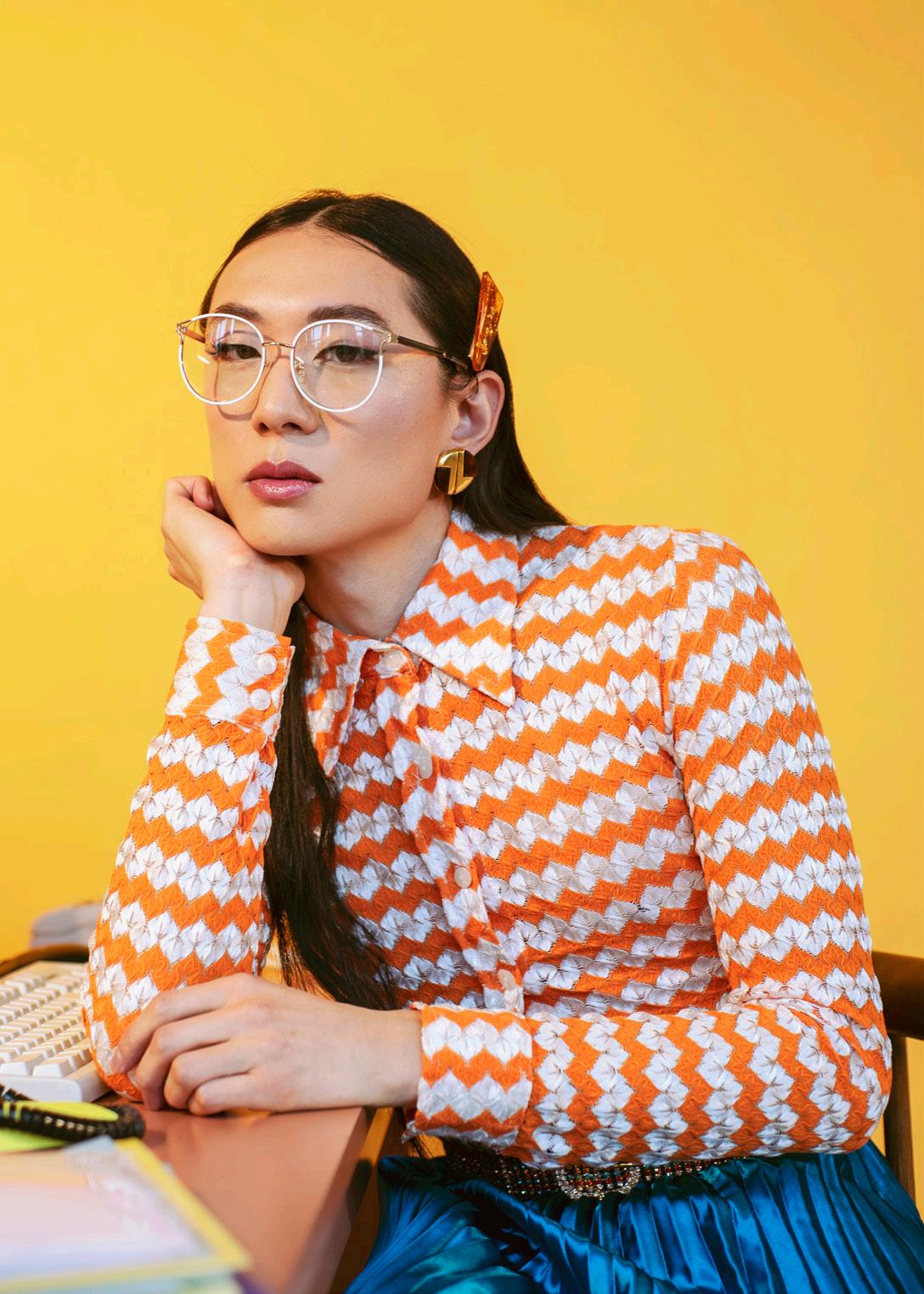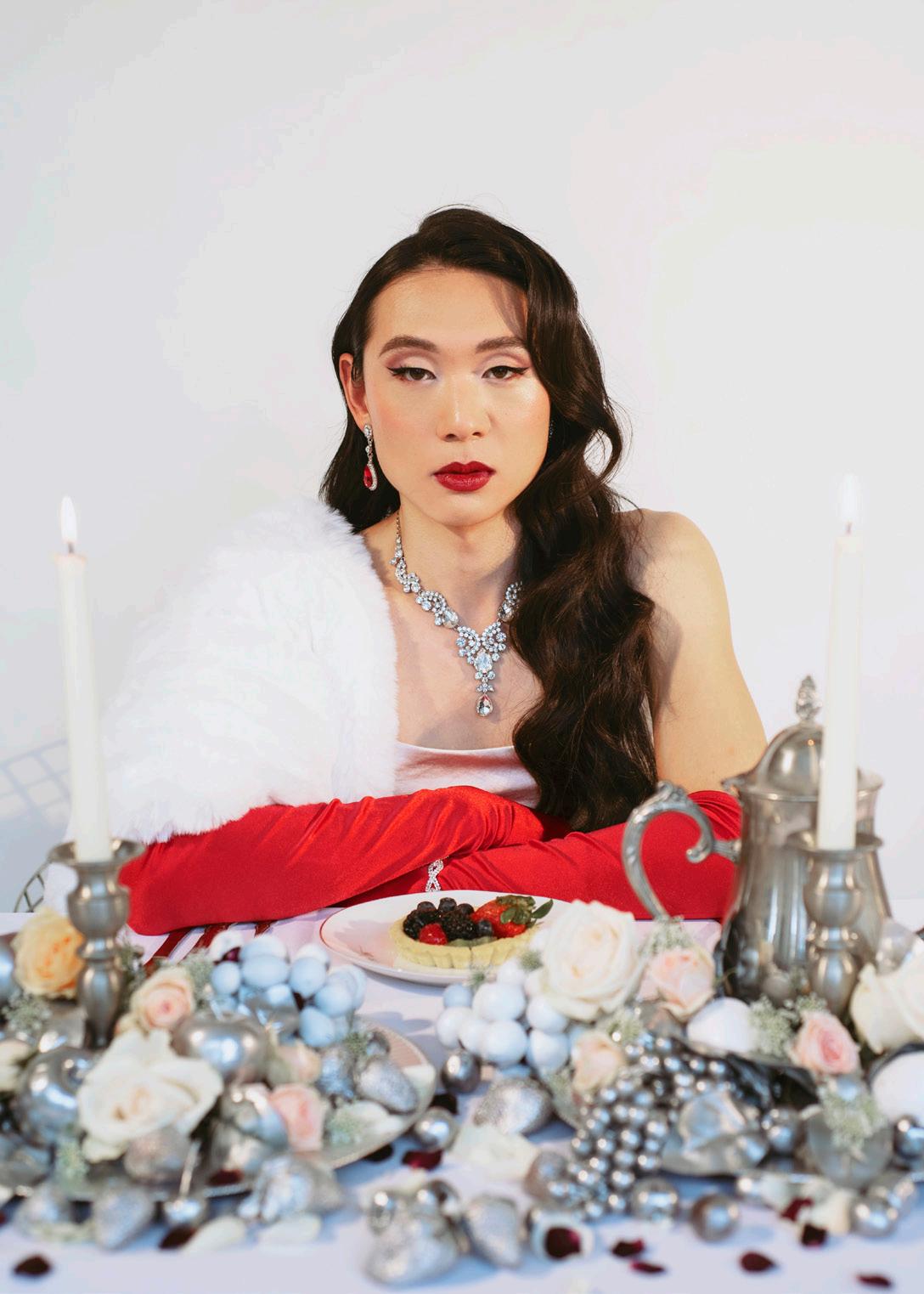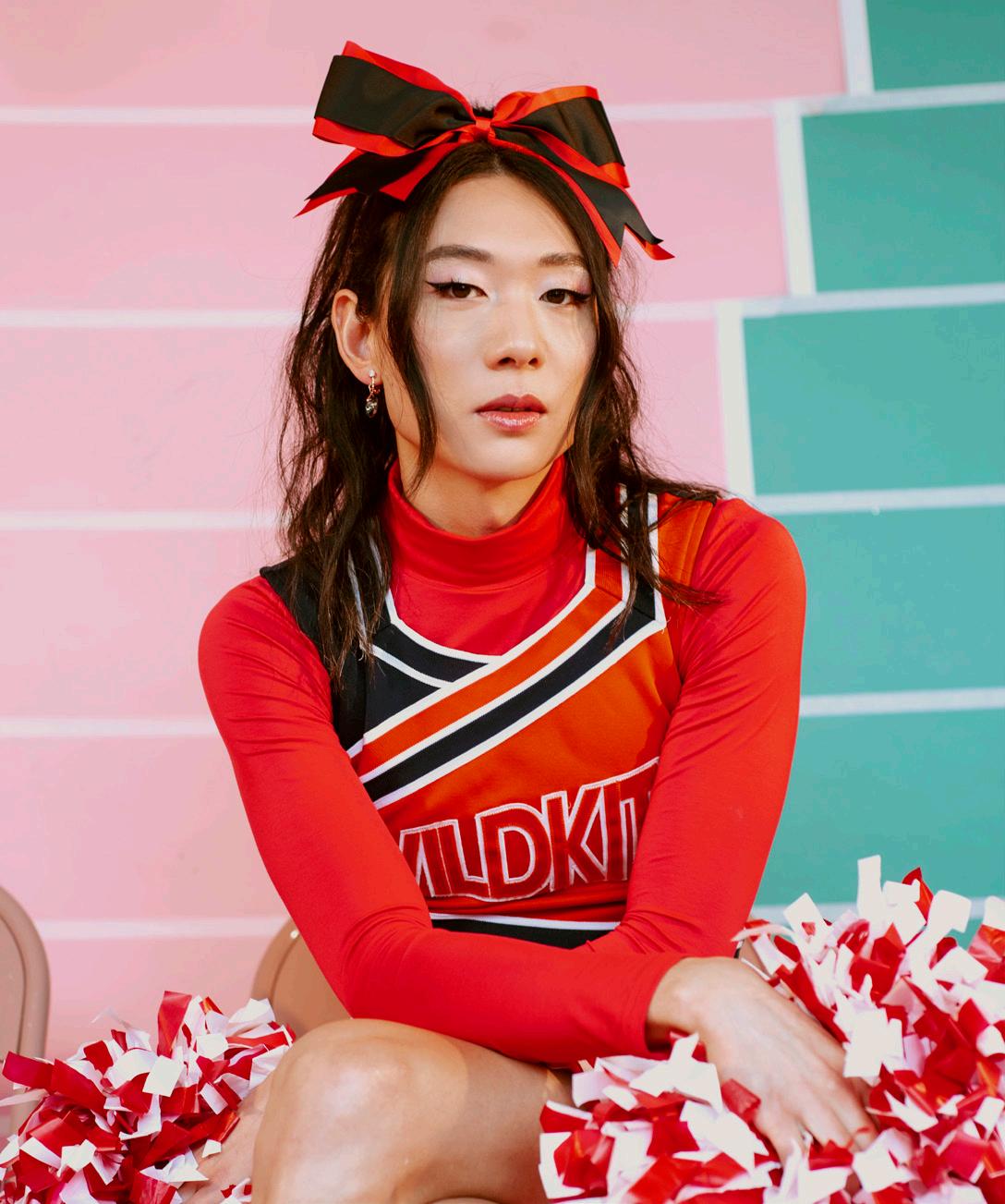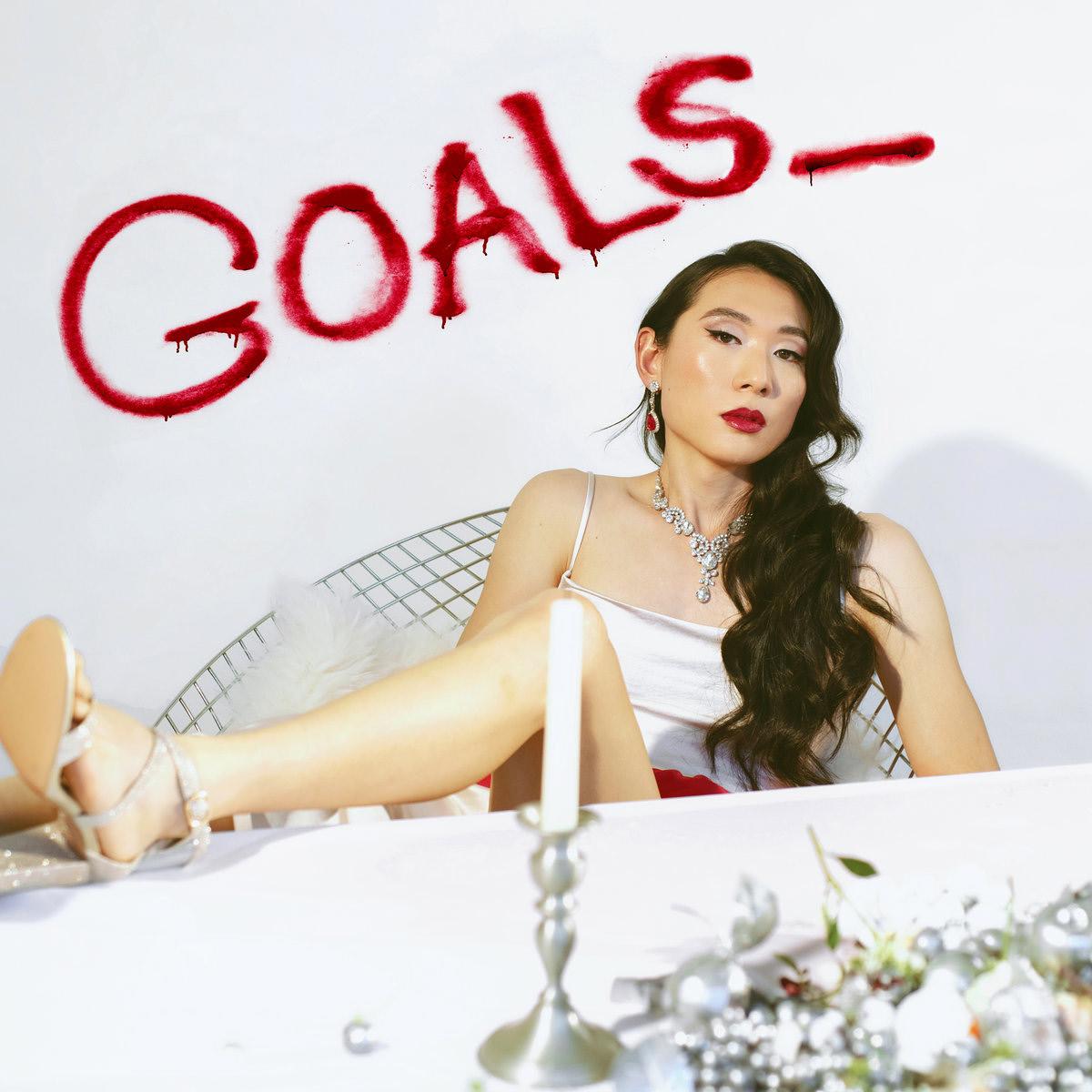
8 minute read
SUPERKNOVA
from ROC June 2021
Would you say that much of your music is selfexplanatory? (If so could you tell us how/why)
Yeah, I would definitely say that my music is selfexplanatory. You know, I think there’s not a lot of nuance and subtlety to my songs. I mean my second home was called American Queers. I make what I tell people. I’m a queer pop music and that’s definitely, you know, partially intentional because you know, I make music as a queer person and you know obviously I for everyone, but also first and foremost for queer people for people like me and you know, I think it’s getting better in our society, but it used to be so much that and sometimes still is that queer things or even queer positive messages are kind of like hidden or implied or you know in this very subtle way and you know I want with what I do to be very blatant and Blash very proud, loud and proud about who I am and what I do. part of it also is to just like, you know, I started you know my first band that played in more punk rock bands and punk rock is all about you know being very loud and blatant and obvious and you know if I think something comes through and what I do still comes through and what I do in my music and my lyrics as well. So, a little bit of that punk rock spirit.
Advertisement
Beyond the actual music, lyrics, are there any other ways you try to express your creativity? (Discuss your video, and/or your photo shoots)
Yeah, absolutely. I think another outlet for me for creativity that kind of ties into my music is through YouTube and through videos. I recently started doing some kind of tutorial videos on YouTube. Partially just because I completely do everything myself. I record, mix and master myself, and I’m pretty much completely self-taught in that aspect. Like, everything I know about mixing and mastering pretty much comes from YouTube or some other guide on the internet that there’s so many of now. Which is amazing, you know! It’s never been a better time to be a self-produced, self-recorded, self-mixed musician. But, you know, the vast majority of them, obviously there’s some exceptions, some great exceptions, but the vast majority are, you know, made by white, just men, white men on the internet. And so I want to just be like one queer trans woman making tutorial so that people could learn about mixing and recording without listening to cis-white man talk with them. So, I try to make those videos. I like being creative in how I film in them and kind of like the look of them. And also, I talk about them… For example, I did a tutorial on how to make a like a D. I. Y. microphone out of a vintage telephone, like a telephone as a microphone. It’s actually really easy to do and actually pretty cheap if you’re like bio thrift stores that have those phones. And you know a lot of those videos they talk about like cables and plugs and like in electronics and electrical engineering or whatever and plugs they called like the pin end the male and the plug in the female. And it’s really gross and fucked up. And so, like I just talk about that in the video and I’m like, I don’t call it that lets you know, like, please start calling it the pin end of the plug in. Don’t bring genitals, especially this transfer of glens of genitals into cables and music equipment. But yeah, so I just always try to bring those things into the videos and that’s been like a really fun, great way, to give back a little bit to the community that I learned a lot from, and also to just be another voice in that arena. Yes.
Last June you were raising money for Black Justice & LGBTQIA+, what experience was like for you?
I was honored to be able to give to the movement,
in that way to be in a position to be able to donate to raise money and to contribute to the movement through social media and through funds. Obviously, that’s only one relatively small way that you can contribute to the movement. But yeah, I’m just honored that I could be a part of this very special moment for the fight against racism in this country. Obviously, it is very unfortunately, very tragic events that brought about this large boost that happened last year. But, it’s also really beautiful how the community and several communities came together to really build momentum for the movement. And I hope it just continues to grow and build, this year, as more communities come together, and people start to learn about the deep team play rooted, systemic and structural racism that is in this country and in the world.
Last year along with your fundraising you also participated in protests. What was that experience like? What did you learn that you never thought of from participating in protests?
It was incredibly powerful and inspiring to see what Black activists in this country and all over the world, activists in general. Obviously, particularly Black activists have done to bring this moment together, and just the power that they have and the power of the communities to make this moment happen, and to help bring about some structural change against racism in this country. Obviously, we’re a long ways away from the end of that fight, but I’m just honored to be privileged to be there and be a part of their movement, and can you continue to grow and build that momentum into 2021...
It’s been a year since you were raising money and not a lot has changed. What are some things that we can do to help push things in the right direction?
It’s not all of us to fight white supremacy in all spheres of our lives, too... Continue to fight petition, protest racist institutions, and divert funds from those institutions into Black communities, support Black activists and contribute in whatever sphere or any space you have a modicum of control over, you know, hire Black people in non-tokenized power and leadership positions, highlight black artists or voices within your communities. Buy from black owned businesses, put money into Black neighborhoods, you know, call out racist, white supremacist behavior within your work with whatever sphere of influence


your family that you have control over, you know, educate yourself and others to take that labor away from Black individuals and Black activists, to spread the word and to increase the numbers within our fight in our community. You know, it’s just about whatever doing. You can do, any of us can do, and have the ability to continue to fight white supremacy.
The US has been increasingly more volatile, where do you think people can search for hope? (Should they be searching for hope, or acting)
You know it’s hard to say if it’s, I think in some ways it’s become more volatile but in some ways it’s, you know, it’s just that we’re hearing more about the things that have ever existed. I can speak for my own personal experience as an Asian person with all the Asian American violence. You know people like all this new Asian American violence, I mean that violence has been a racist violence has been in existence in America since the beginning. You know this thing about Atlanta, the horrendous murders in Atlanta and people are talking, you know the police saying oh he was just having a bad day and oh you know it’s not racist because the killer said it wasn’t racist. I mean that reminds me just of the exact same thing that happened With Vincent Chin in the 80s. You know of Asian American man who was out celebrating his bachelor party for his upcoming wedding and these two laid off auto plant workers mistook him for a Japanese man, he was Chinese American and they murdered him in cold blood because they blamed him for their job loss over you know the recent auto industry you know economy and the same exact thing happened the jury, the police said oh it wasn’t racist because they said they said it wasn’t about race and they sentenced him to $3,000 fine for murdering a man in cold blood in broad daylight. And so you know that you know Asian people have known that this is not new police violence against Asian people is not new racism against Asian American people is a new and white supremacy and these alt-right people. I mean, those people have existed for a long time, they’re just given more attention. So that’s my take on that particular point. I think we can draw some hope from the fact that also on the flip side that communities of color, marginalized voices, activists are getting more of a platform as well, so more people are becoming aware of the issue is becoming less covered up. You can’t really start to solve the issue until people know about, and you and admit that there’s an issue. And I think for a long-time people you know worked under the skies of like, oh you know, we’re not racist, you know, America is better and things you know this, this and that. And I think now that it’s kind of more out in the open, it’s a little bit easier to fight. And that’s a, you know, on a positive note, a good turning point from some of the recent events.

INTERVIEWED BY HEX HERNANDEZ PHOTOGRAPHY BY LIZ (@lili_fang)
RELEASED 4/31
FIND SuperKnova
Visit SuperKnova online at Bandcamp SuperKnova Instagram @superknovamusic Facebook @SuperKnovaMusic SoundCloud superknovamusic Twitter @SuperKnovaMusic YouTube SuperKnovaMusic







